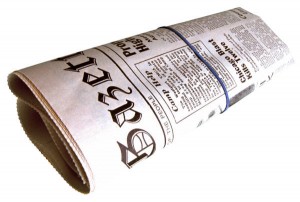Generally speaking you can answer one 20 mark question or two 10 mark questions so we’ll deal with them separately here.
The 20mark question usually goes a little something like this:
- Write a personal response to this poem, highlighting the impact it makes on you.
- Describe the impact this poem makes on you as a reader.
As with studied poetry you are expected to include sentences which use the pronoun ‘I‘.
- Talk about how the poems made you feel.
- Identify what they taught you, how they made you look at an issue(s) in a new way.
- Mention how these themes are relevant to your life.
- Discuss what you enjoyed in the poet’s style of writing.
Remember though, no matter what the question, you are expected to quickly figure out the message/theme of the poem, identify some techniques, and comment on the feelings created in the poem and in you. DO NOT go off on a long rambling tangent about how this poem reminds you of this thing that happened to you once. Mention the poem’s relevance to your life in passing but stay focused – your job is to discuss and interpret the poem and how the poem affects you emotionally/intellectually not to talk about yourself (you can do this in Paper 1 QB and essay).
10 mark questions
Questions on the mood/feelings/atmosphere (see poetic techniques & terminology)
- What is the mood of this poem and how is it conveyed?
- How does this poem make you feel? Explain by detailed reference to the poem.
- How well does the poem capture the boy’s sense of excitement and hope?
- Choose two phrases which best capture the girl’s feelings. Give reasons for your choices.
Questions on the setting (see language of narration / descriptive writing)
- Do you like the world that the poet describes in this poem? Give reasons for your answer.
Questions on the imagery/ style of writing (see poetic techniques & terminology)
- Choose one image/line from this poem that appealed to you. Explain your choice.
- The poem uses beautiful imagery to capture an ugly reality. Discuss.
- The poem makes effective use of irony – discuss.
Questions on the poet/speaker/characters in the poem
- What impression do you get of ….. the poet’s father – the father/son relationship? (see list of character traits).
- What impact does this childhood experience have on the poet/speaker?
- What kind of life do you think the speaker lives?





